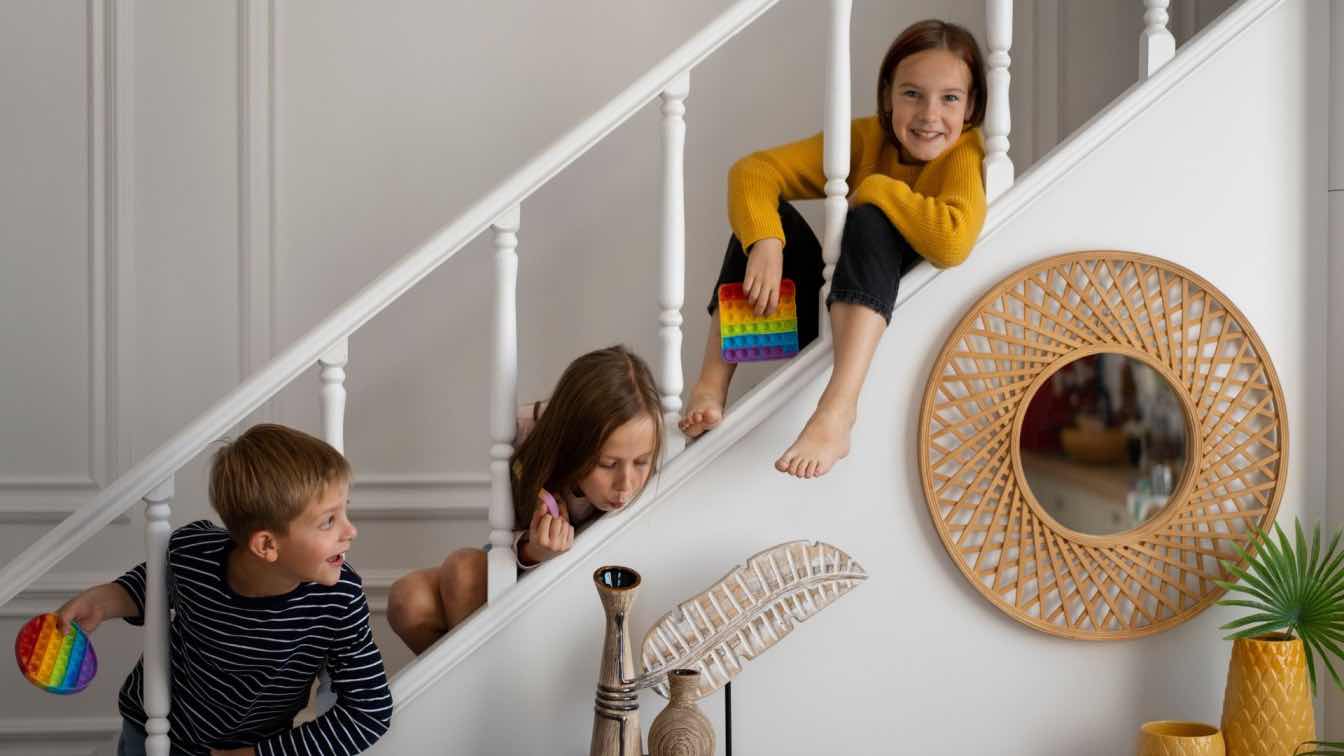Creating a safe environment for your children is a top priority for any parent. Homes are filled with potential hazards, from sharp corners and electrical outlets to household chemicals and stairs. Childproofing your home is an essential step in preventing accidents and ensuring the well-being of your little ones. This article provides comprehensive tips on how to childproof various areas of your home, allowing you to create a secure and nurturing environment for your children.
1. Living Room Safety
The living room is a common area where children spend a lot of time playing and exploring. To make it safe:
Cover Electrical Outlets: Use outlet covers or plates to prevent children from inserting objects into electrical outlets.
Secure Furniture: Anchor heavy furniture, such as bookshelves and TVs, to the wall to prevent them from tipping over.
Corner Guards: Install corner guards on sharp furniture edges to prevent injuries.
Cord Management: Keep cords from blinds, curtains, and electronics out of reach to avoid strangulation hazards.
2. Kitchen Safety
The kitchen is full of potential dangers, from hot surfaces to sharp objects. Ensure your kitchen is safe by:
Lock Cabinets and Drawers: Use childproof locks to keep children from accessing dangerous items such as knives, cleaning supplies, and small appliances.
Stove Safety: Use stove knob covers and keep pot handles turned inward to prevent children from pulling hot pots off the stove.
Secure Appliances: Ensure heavy appliances like microwaves are securely placed and not within reach of children.
Trash Safety: Use a trash can with a childproof lid or keep it in a locked cabinet.
3. Bathroom Safety
The bathroom can be one of the most hazardous places in your home. Take these precautions:
Non-Slip Mats: Place non-slip mats in the bathtub and on the bathroom floor to prevent slips and falls.
Lock Toilets: Use toilet locks to prevent drowning risks.
Store Medicines Safely: Keep all medications, vitamins, and cleaning products in locked cabinets and out of reach.
Adjust Water Heater: Set your water heater to 120 degrees Fahrenheit (49 degrees Celsius) or lower to prevent scalding.
4. Bedroom Safety
Ensure your child’s bedroom is a safe haven by:
Crib Safety: Use a crib that meets current safety standards and avoid using pillows, blankets, and stuffed animals that can pose suffocation risks.
Window Safety: Install window guards or stops to prevent children from falling out. Keep furniture away from windows to discourage climbing.
Secure Dressers: Anchor dressers and other heavy furniture to the wall.
Choking Hazards: Keep small toys and objects out of reach to prevent choking.
5. Stair and Hallway Safety
Stairs and hallways need special attention to prevent accidents:
Baby Gates: Install baby gates at the top and bottom of stairs to prevent falls. Use gates that are hardware-mounted for better security.
Handrails: Ensure handrails are secure and easy for children to grasp.
Lighting: Keep hallways and stairs well-lit to avoid trips and falls.
6. General Home Safety Tips
Here are some additional tips to ensure your entire home is childproof:
Poison Control: Keep the number for poison control easily accessible in case of emergencies.
Smoke and Carbon Monoxide Detectors: Install and regularly test smoke and carbon monoxide detectors on every level of your home.
First Aid Kit: Have a well-stocked first aid kit in an easily accessible location.
Emergency Plan: Develop and practice an emergency evacuation plan with your family.
Conclusion
Childproofing your home is a continuous process that requires regular updates as your child grows and becomes more mobile. By taking proactive steps to secure your living spaces, you can prevent accidents and provide a safe environment for your little ones to explore and thrive. While home safety is crucial, it’s also important to consider the safety of your family outside the home. In the unfortunate event of a car accident, consulting with experienced car accident lawyers can help ensure that your family's rights are protected and that you receive the necessary support during such challenging times.





